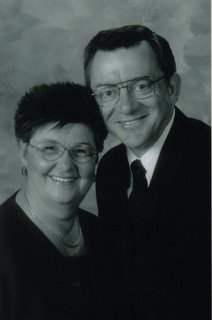Boundaries That Work
In my previous article I said that boundaries are essentially about self control. They set limits for the way you respond to someone else’s behaviour. They are an expression of love. They communicate respect. They help create an environment where both partners can focus on the issue and how they will respond to it rather than on each other. Then love can grow.
In this article I want to give some examples of boundaries.
Language or words define what you will or won’t do. “No, I don’t want to do that, yes I want to do that, I will, I won’t, I do/don’t like that” are words which establish boundaries. They let your partner know what you are willing to do or not to do. Notice that in each one of these boundaries the focus is on you and your actions. You can not establish boundaries for what someone can or cannot do.
Truth is another boundary. God has established laws and principles for us to live by. They were given to provide security and stability in our relationships. For example, “do not commit adultery” is a law that was given to avoid heartache and pain. If I choose to ignore this law I will suffer the consequences but the law will still be there. It cannot be broken; I am the one that gets broken when I run against it. Once again the focus is on what you will or won’t do with the truth. You can only set a boundary for yourself.
Other examples of truth as boundaries include, do not lie, do not steal, do forgive, do exercise compassion, do love and respect each other. Living within these boundaries creates security in one’s relationships.
Establishing consequences for unacceptable behaviour is another type of boundary. Actions speak loudly when the whisper of words goes unheeded. This is one of the more difficult boundaries to establish but a very important one. For example if a spouse uses abusive or insulting language you can choose to leave the room or the house if necessary. You cannot stop the abuse but you don’t have to stay in the abusers presence. Or if a spouse drinks to much you choose not to call his boss to bail him out. You establish a boundary that causes him or her to experience the consequences of their behaviour. If lease payments are not made and you allow the vehicle to be repossessed you reinforce that irresponsible behaviour will have unpleasant consequences. This can be a great motivator for change.
Sometimes a more drastic boundary needs to be established. When a spouse or a child is in physical danger you may need to leave for awhile. A time of separation may be necessary to allow time to heal and to address systemic issues. It is very important that when a boundary about leaving is established you live up to under any and all circumstances. For example, when you say you will leave if your spouse hits you again or brings drugs into the house you must leave if that happens. Failure to leaves robs both partners of the benefits that can come from feeling the consequences of his or her actions. In addition, failure to act when a stated boundary has been crossed gives permission for the abuse to continue. It says that there are no consequences for the abuse. This form of enablement is a virtual guarantee that the marriage will end in disaster.
In each of these boundaries you establish limits for your own actions. You are choosing to not be a victim or be at the mercy of someone else. This has the potential for defusing an immediate situation and change the entire relationship itself.
An excellent resource for learning more about boundaries in marriage is the book Boundaries in Marriage by Dr. Henry Cloud and Dr. John Townsend.
John and Anne Neufeld have a counseling practice specializing in marriage and premarriage issues. They also conduct marriage seminars for churches and groups across the country. Do you have topics you’d like to see addressed in this column? Email them and they will try to address them in future articles. They can be reached at focused44@shaw.ca or 204-326-4263.

